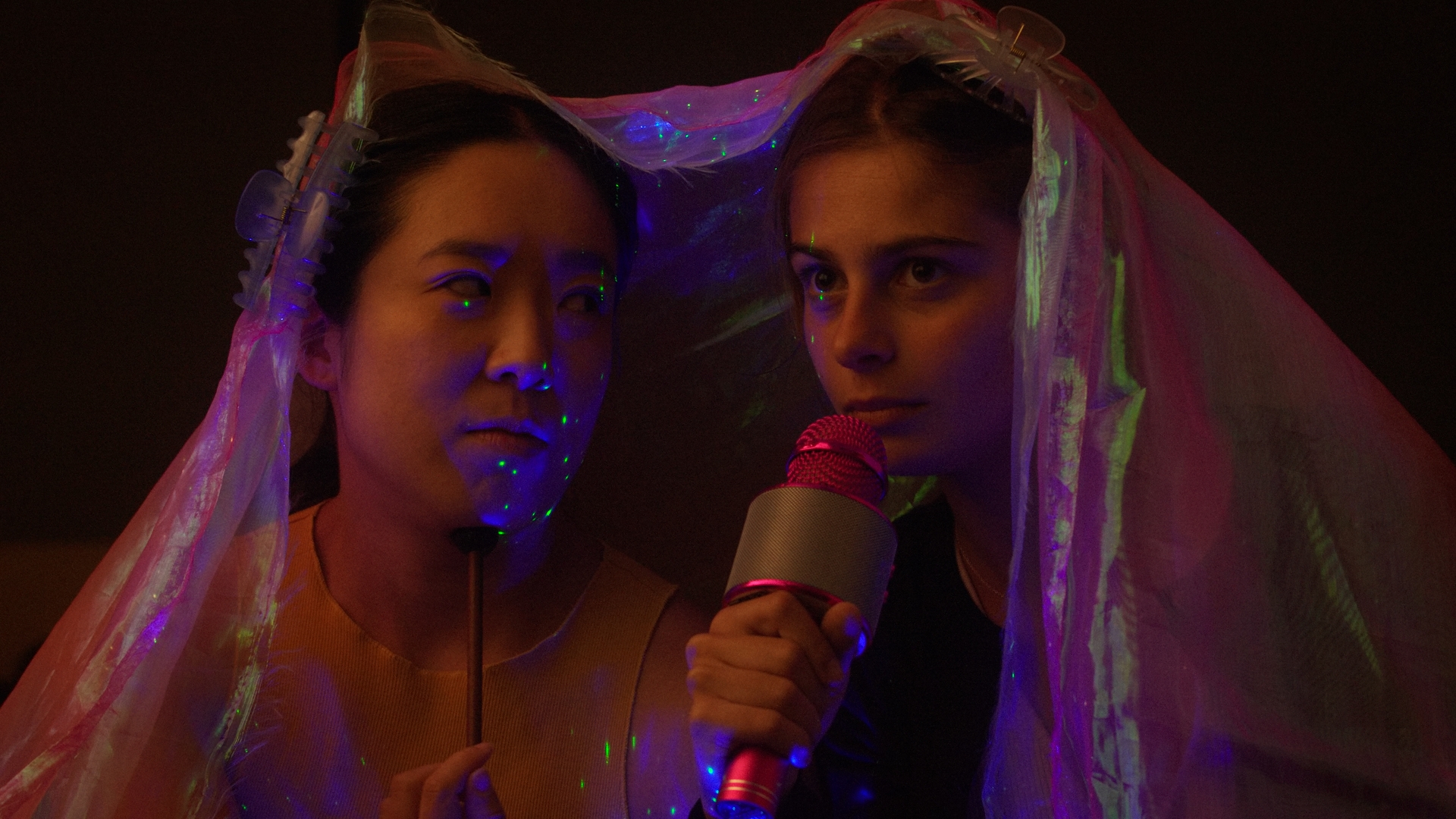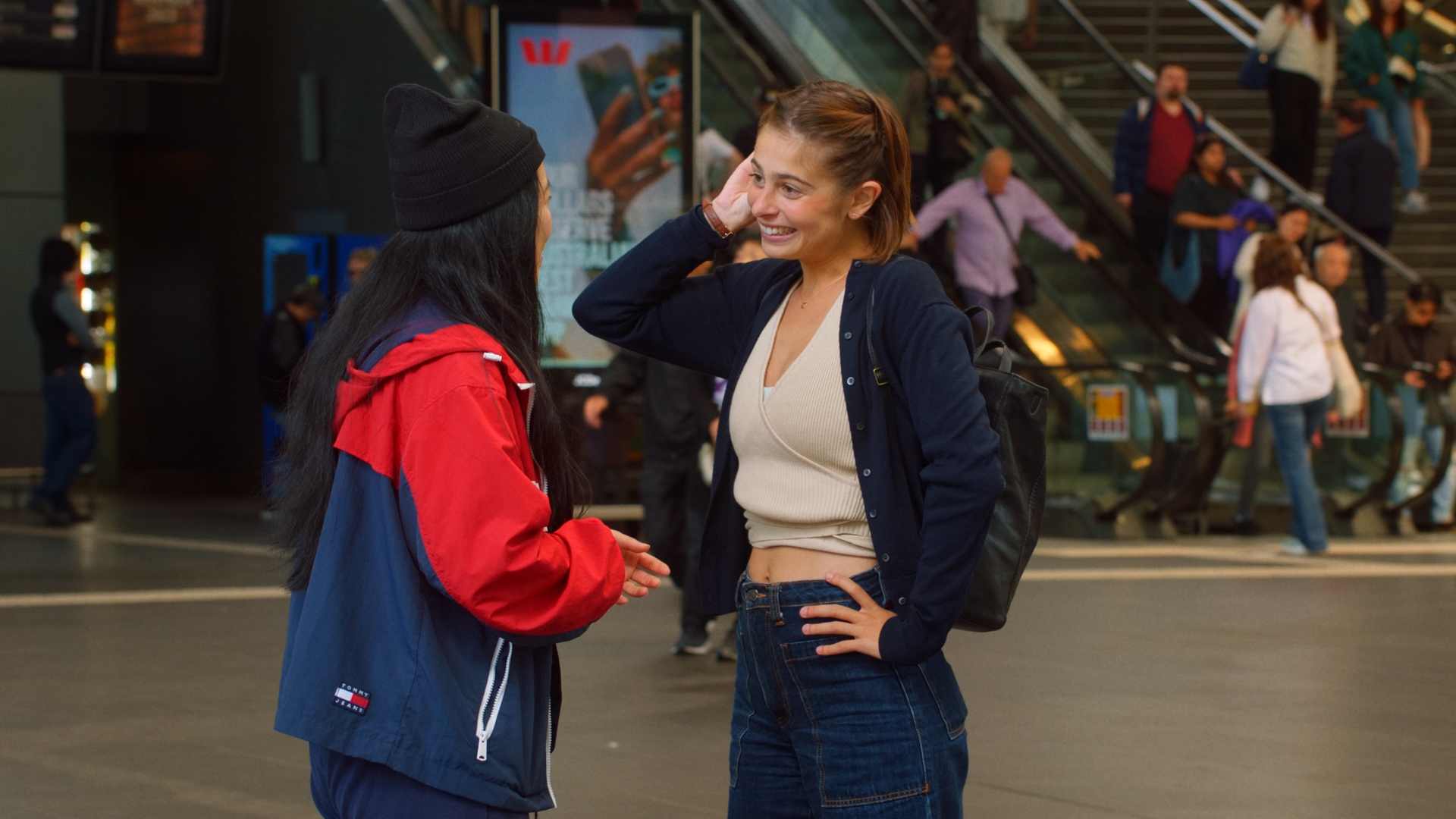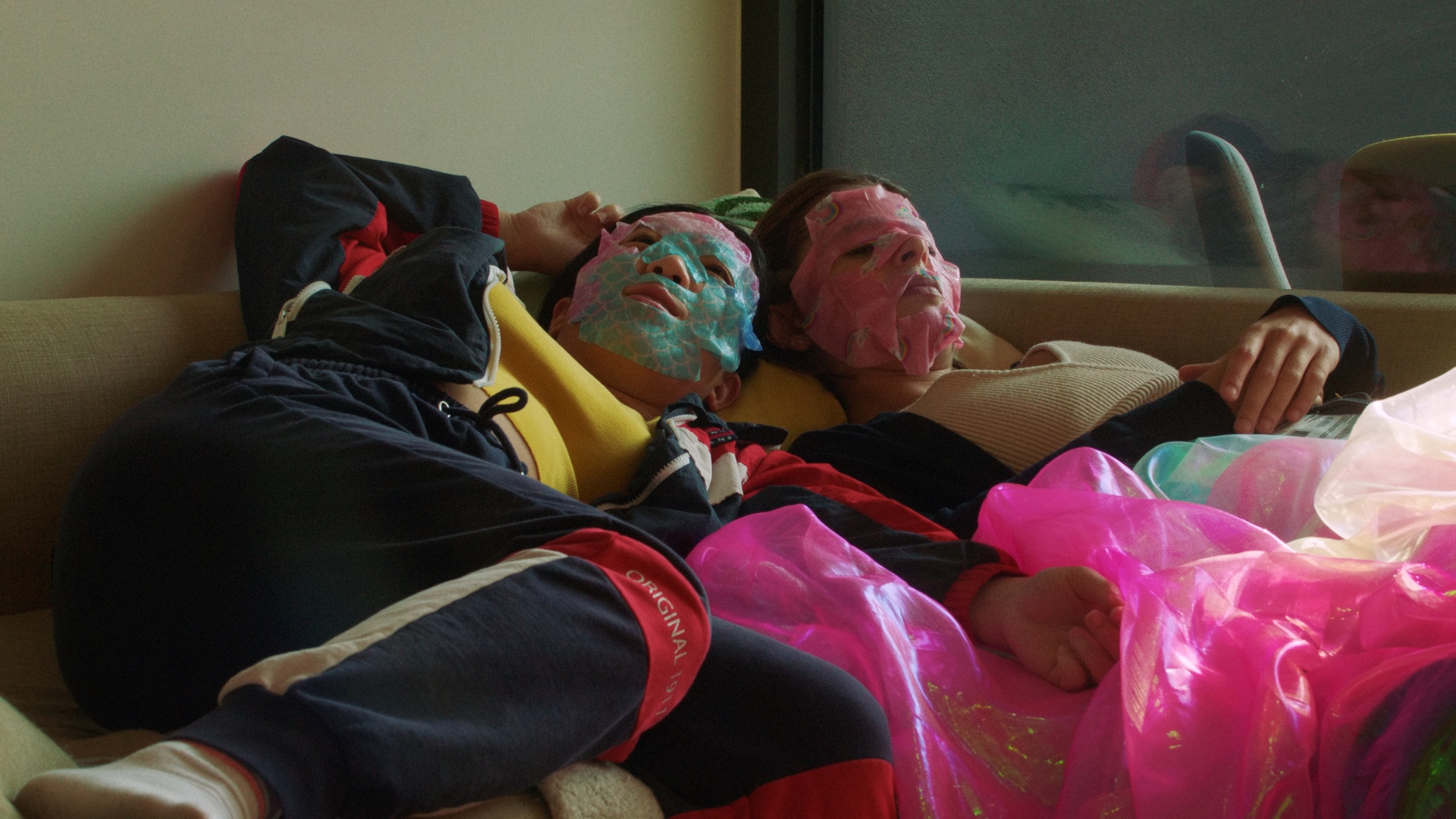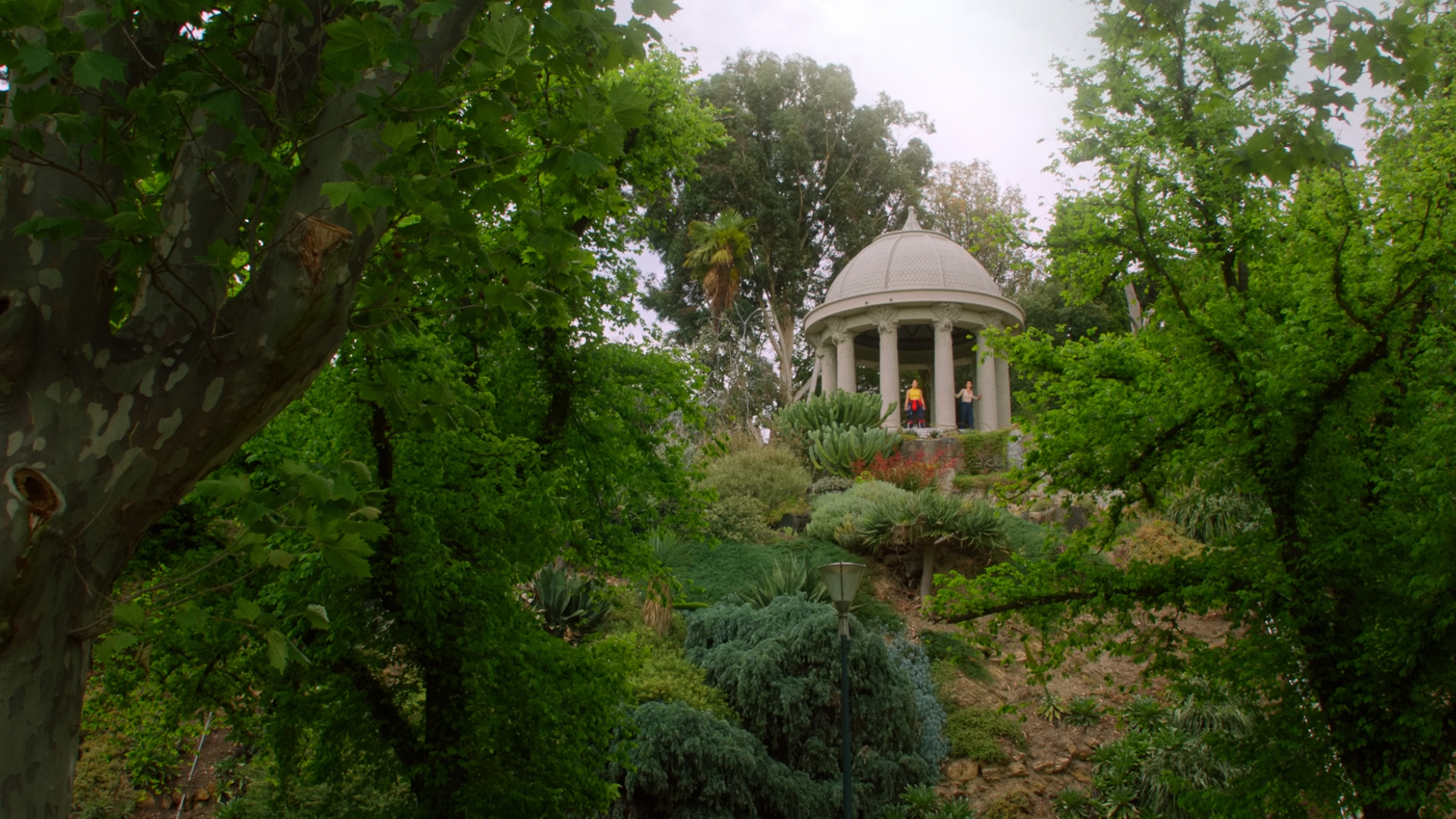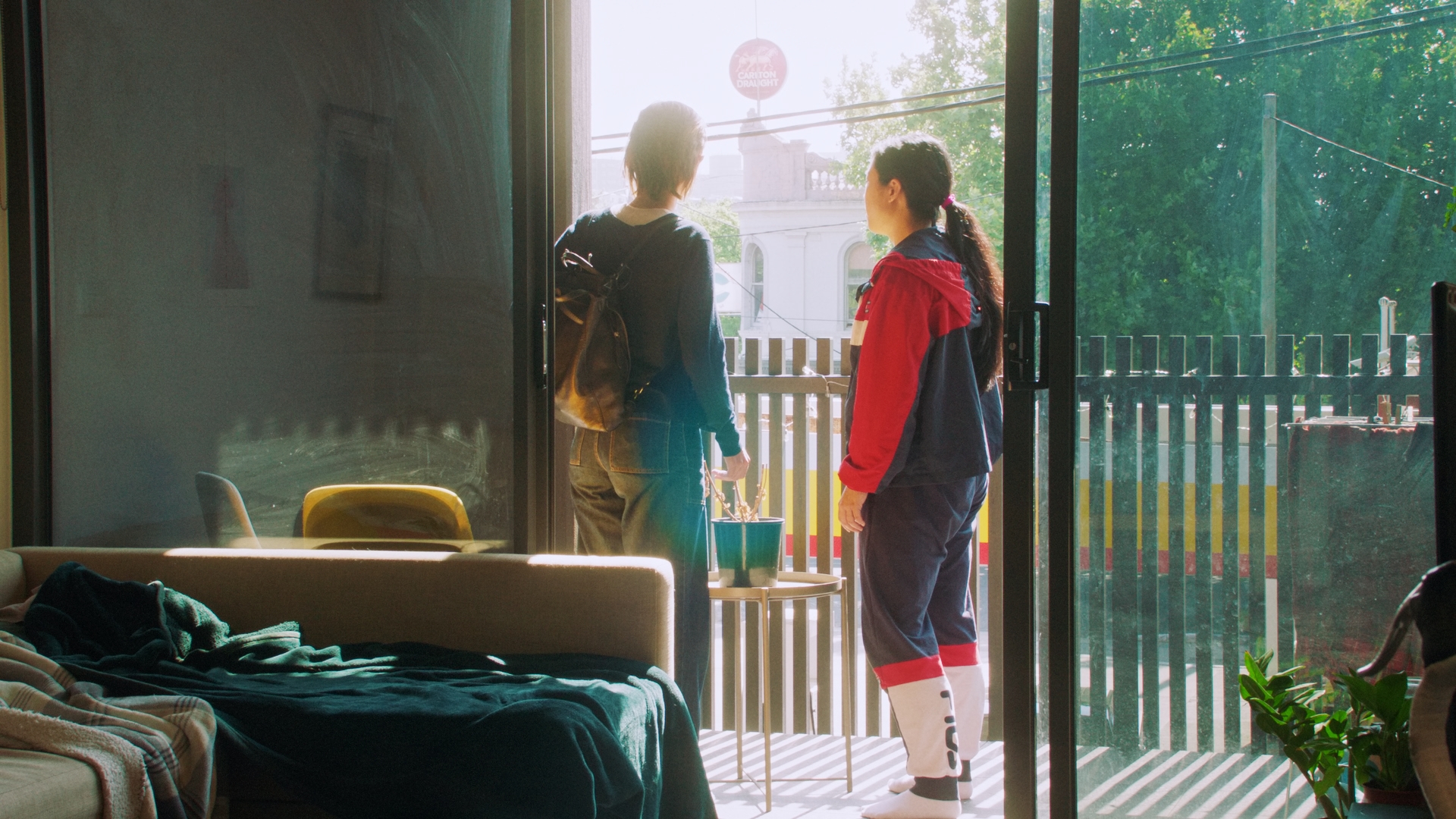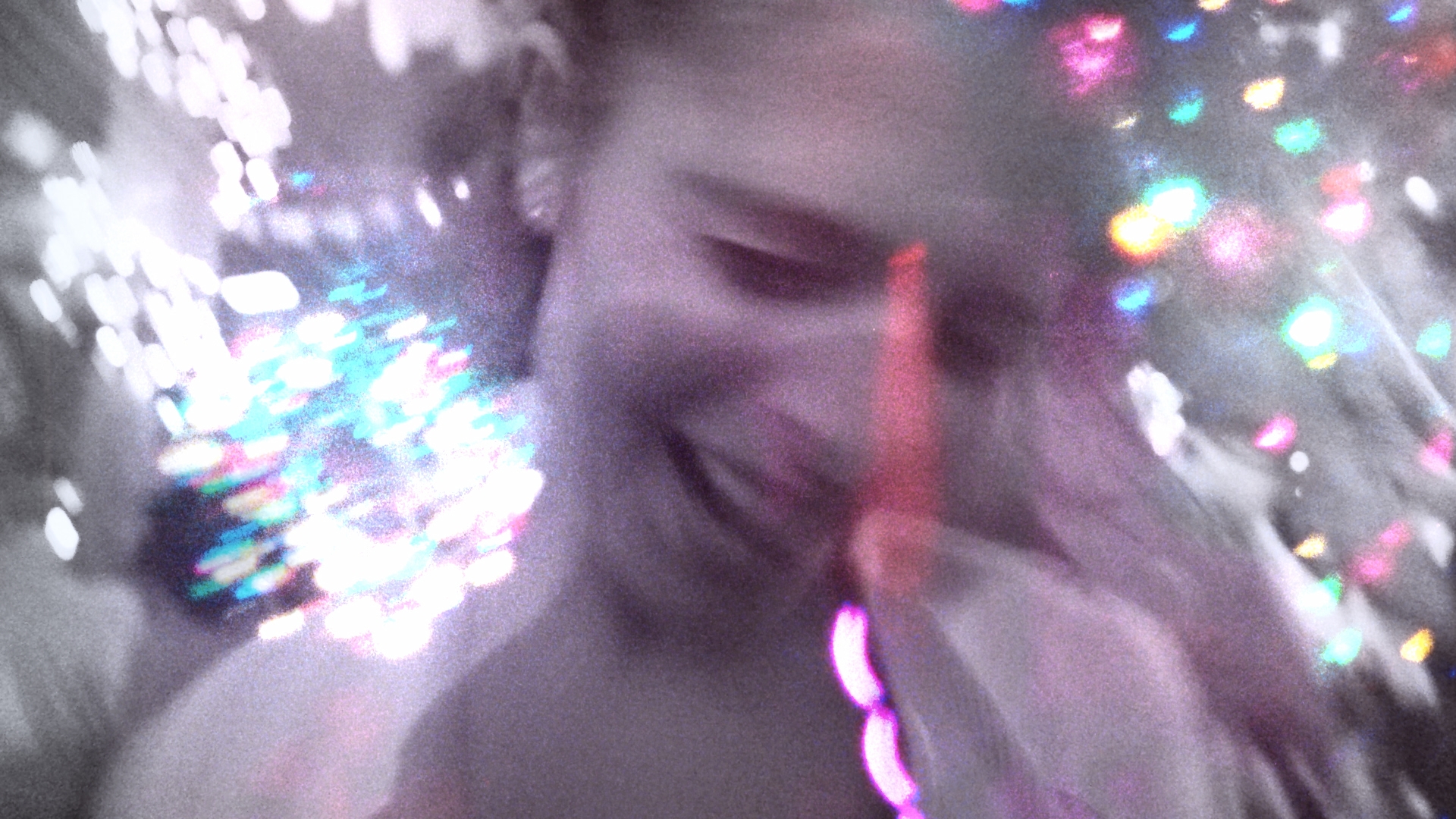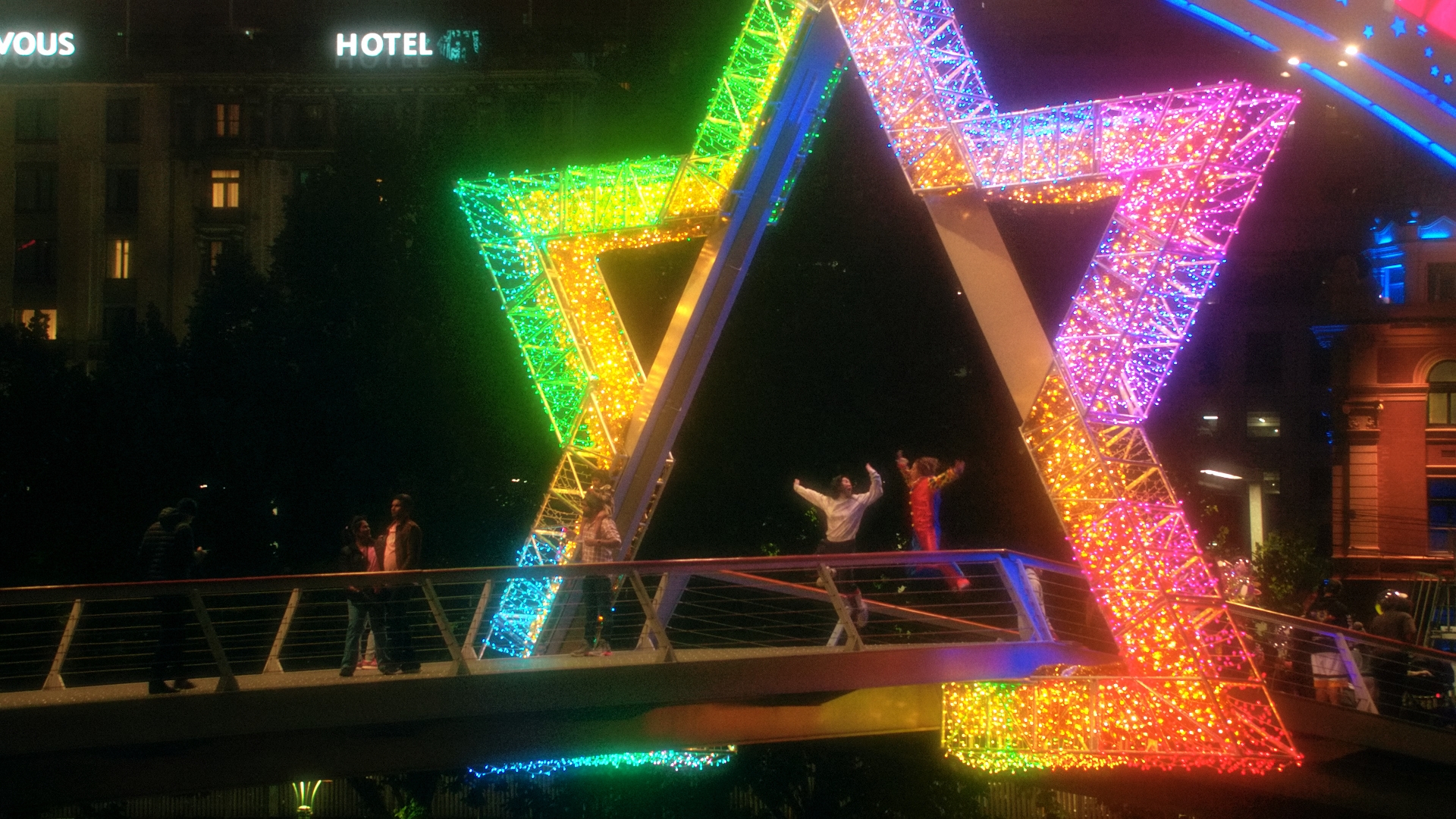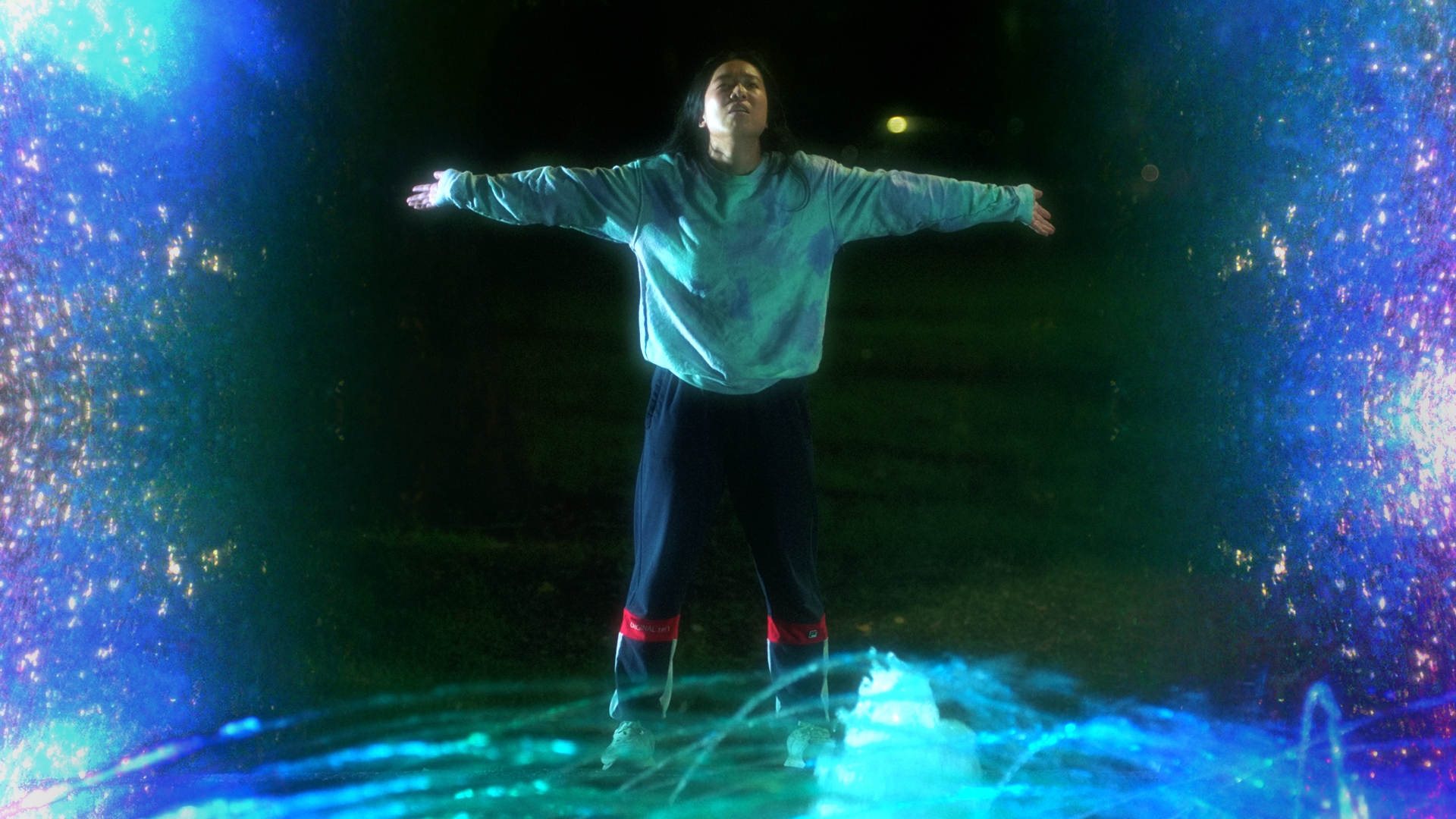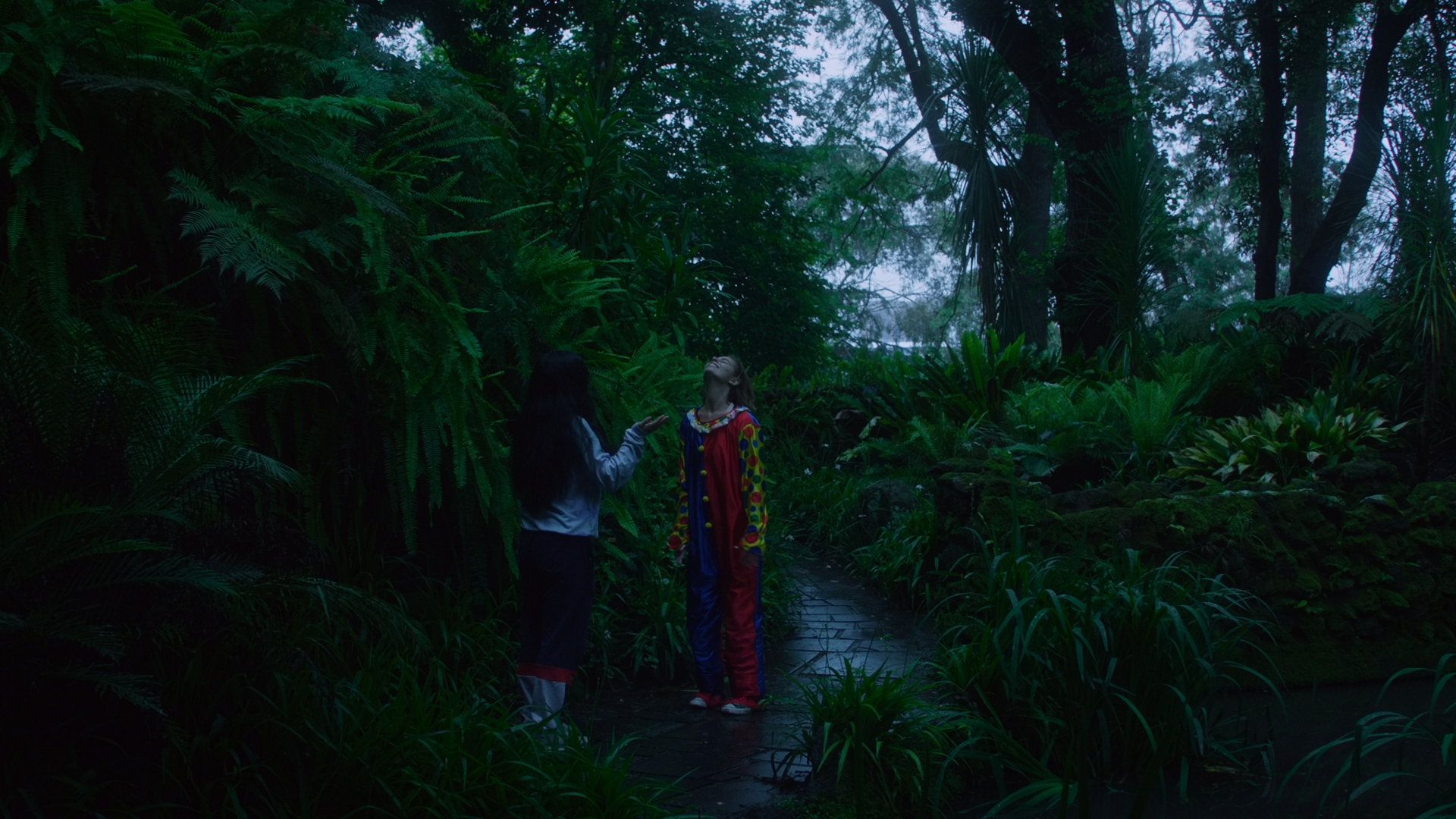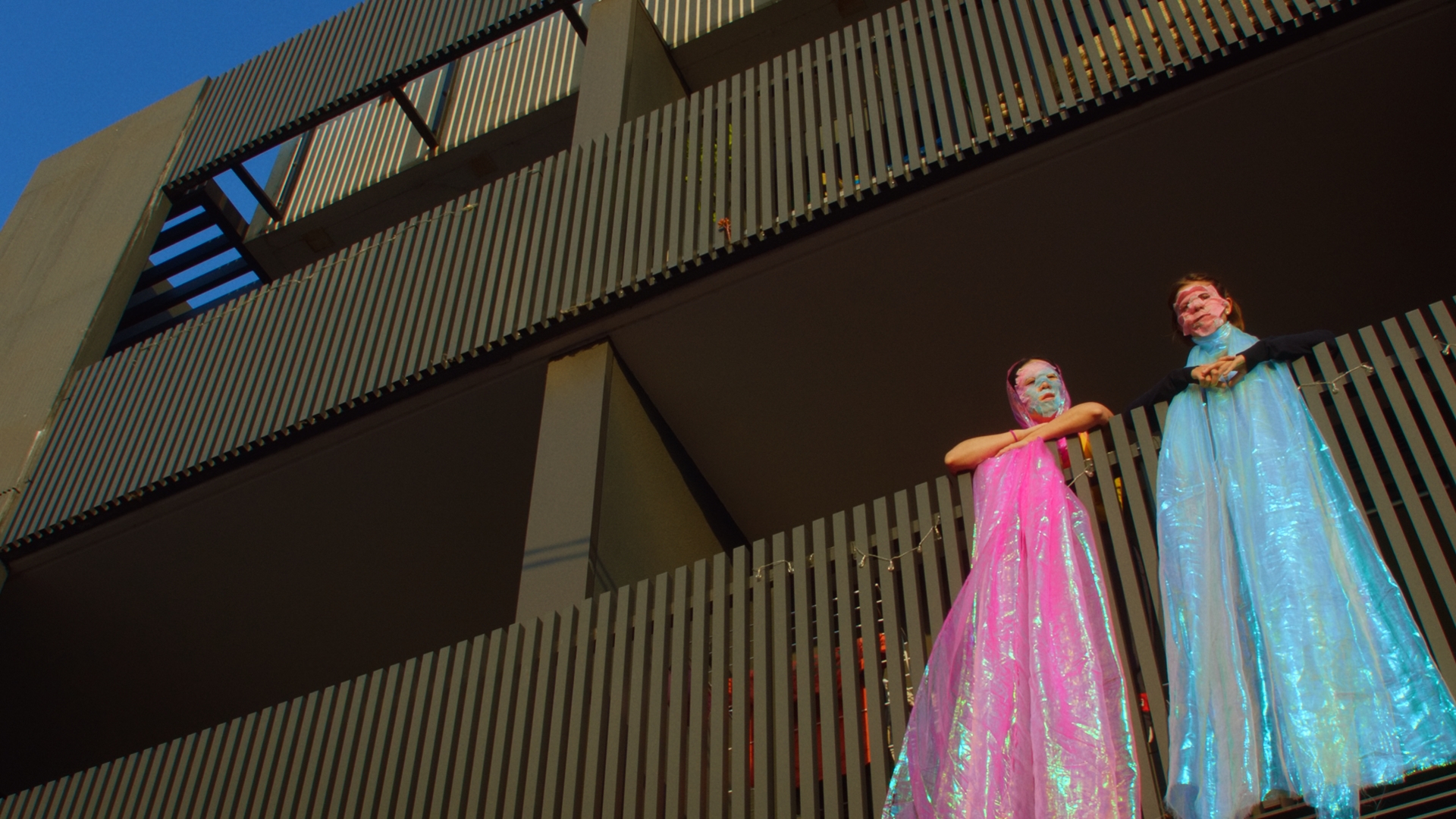Friendship is a magnificent subject for cinema. So obvious, really, yet so rarely explored with genuine depth. Fwends presents old friends who still feel that familiar intimacy, yet simultaneously don’t quite know what their friendship means anymore. Winning our hearts because it feels so utterly authentic—completely improvised Gen Z lives wandering through Melbourne.
Fwends! That spelling, as if spoken by a small child, makes the word—and thus the title—instantly endearing. Touching, disarming. Which suits not only the two protagonists but the film as a whole. This is a film to befriend.
First, those protagonists: two Australian friends who haven’t seen each other for some time, both rather lost, spend a weekend walking through Melbourne. That’s where drifter Jessie lives, and she shows the city to lawyer Em, visiting from Sydney.
This is what debut director Sophie Somerville told Australia’s Irresistible Magazine about the title: “It’s kind of girly, kind of unserious. But we made this film that some people are calling “art house,” and I liked putting those two things together. Reclaiming the softness and showing it has weight. It’s like when you see an old friend and suddenly you’re both 16 again. That space of regression and nostalgia—that’s what the title holds.”
Jessie and Em clearly know each other from when they were much younger, and you feel that ‘regression and nostalgia’ immediately as they greet each other with beaming smiles for the first time in ages. Fwends. But meanwhile, they’ve genuinely grown older, and the film moves subtly between that natural, playful familiarity and the more difficult, cautious sharing of their current problems. Relationships, work; depression, MeToo. Problems recognisable to far too many people—especially young women.
This is probably a good moment to mention that I’m not a young woman, but an old man. So old that my generation didn’t even have a name when I was growing up—only later did it become Generatie Nix. Which isn’t really much either.
Without a doubt, a generational and gender peer will experience Fwends differently than I do. That title doesn’t make me think of Gen Z internet speak—which it is—but of good old Elmer Fudd and his “wascally wabbit.” And less of Girls (an inspiration for Somerville) than of Richard Linklater’s Before trilogy city walks (also an inspiration for Somerville).
Yet I’ve become friends with this film. I think because of that familiar rule that to be universal, you must be specific—the film couldn’t make friendship feel so palpable, including the ups and downs, if these two young women weren’t so specifically, individually real. Because that’s the main reason I’ve taken this film to heart: it all feels so authentic—how they don’t have it all figured out but want to be together anyway.
The two actors playing Jessie and Em, Melissa Gan and Emmanuelle Mattana, are credited as co-writers for good reason: the entire film was improvised based on only a rough story outline. One that could be thrown out the window when one of the actors unexpectedly improvised a conflict in a long scene. That scene was so good they absolutely had to keep it. And so that became the direction the story had to take.
Somerville uses many long takes throughout—often minutes at a time—which heightens the feeling of ‘living alongside’ Jessie and Em. And meanwhile, we draw closer to them as the film progresses. From guerrilla-style wide shots outside (but not jarring—beautifully, calmly shot) to intimate close scenes inside, we approach Jessie and Em both literally and figuratively.
The budget was minimal, so the filmmakers had to work with what was available. Somerville turned this disadvantage into an advantage, she told Irresistible: “We tried to see constraints as opportunities. Not “What can’t we afford?” but “What does the world already offer us?” That shift in mindset made everything feel more abundant.” It was particularly clever to film around Christmas, so lights were everywhere: free production value. And moreover: this receptiveness helped make everything feel as real as possible. Real friends, having real conversations, in a real city.
KEES Driessen
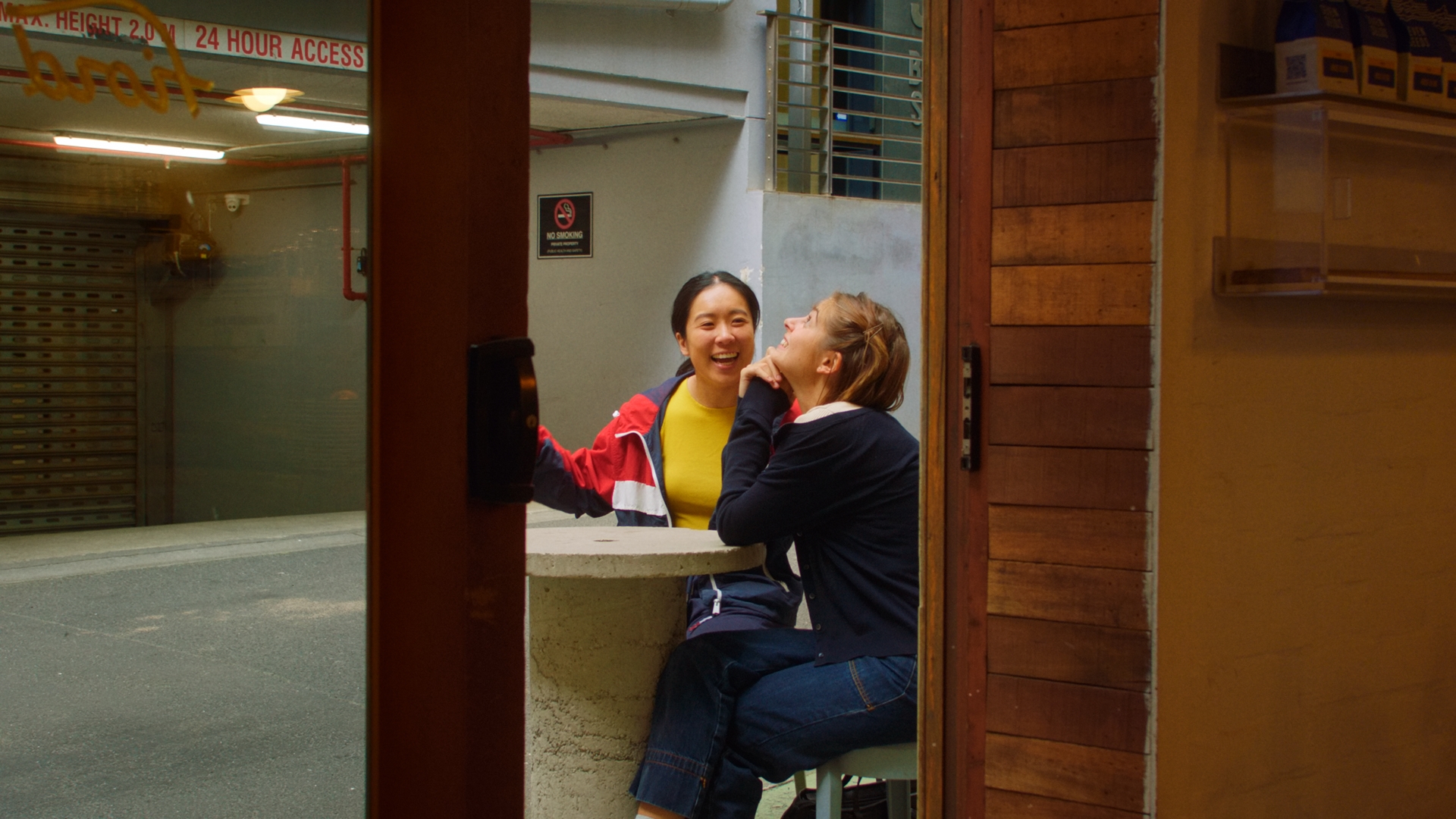
LINKS
- https://www.instagram.com/p/DGXn_9MuuF3, At the Berlinale, where it had its world premiere, Fwends received the Caligari Award for a “stylistically and thematically innovative film”. The drug scene likely contributed to that recognition.
- https://www.youtube.com/watch?v=OaXTYxTODq0, At that Berlinale, Somerville gave this charming brief interview to The Upcoming: “I just wanted to show two of the most real people I could, from my generation, experiencing something very real.”
- https://www.abc.net.au/news/2025-06-04/fwends-sophie-somerville-sydney-film-festival/105366812, But please don’t call the film mumblecore, Somerville asks. “That suggests it’s a low-key sort of film and that’s not what it is for me at all. This film is something enormous for the characters going through it.”
- https://www.youtube.com/watch?v=9hiNC7uKY1Y, Not sure what mumblecore is? This video lists the characteristics using a few titles, including: Baghead (2008) by the Duplass brothers. And guess whose film Pluk is also screening this year? Exactly!


